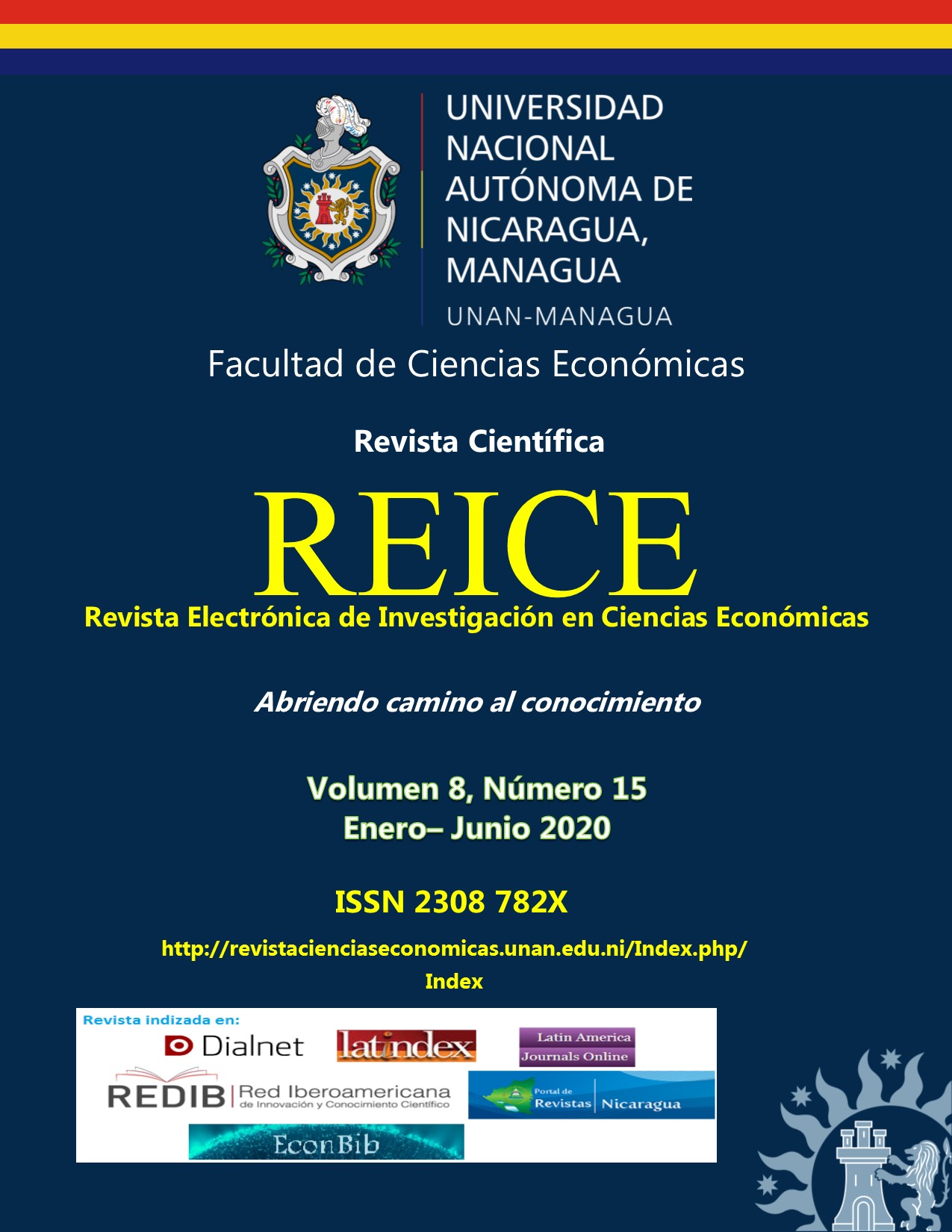El Traslado de Bienes como Amenaza Estratégica a la Seguridad Económica de los Estados Europeos
DOI:
https://doi.org/10.5377/reice.v8i15.9974Palabras clave:
seguridad aduanera, frontera aduanera, seguridad nacional, normas aduaneras, transacciones comerciales.Resumen
La relevancia del problema descrito en el artículo se debe al hecho de que los procesos de globalización abren las fronteras de los estados para operaciones internacionales con rotación de productos, promueven el desarrollo del comercio. Sin embargo, los procesos de globalización también provocan el movimiento de bienes fuera de la frontera aduanera o su ocultación del control aduanero, lo cual es una amenaza significativa para la seguridad económica del estado y requiere la búsqueda de áreas para contrarrestar y combatir el contrabando de bienes. El propósito del artículo es resumir los datos sobre el estado actual y los métodos para minimizar el contrabando de bienes como una amenaza para la seguridad económica del estado. Este objetivo se logró utilizando el método de análisis crítico, el método lógico formal y el enfoque estructural del sistema. El artículo describe el concepto de "contrabando", los tipos de contrabando y las causas del contrabando de bienes. Se han identificado los problemas para contrarrestar el contrabando y se han resumido las propuestas para mejorar las actividades en esta área. Se hizo hincapié en la conveniencia de la responsabilidad penal por el contrabando de bienes comerciales en el país y se propuso modificar el artículo 201 del Código Penal de Ucrania. Las propuestas contenidas en el artículo tienen como objetivo mejorar las actividades de las autoridades aduaneras y fronterizas en el campo de la lucha y lucha contra el contrabando de mercancías.
Descargas
695
Descargas
Publicado
Cómo citar
Número
Sección
Licencia
Copyright (c) Revista Electronica de Investigacion en Ciencias Economicas
Los derechos sobre los artículos publicados en REICE son de la revista, a los efectos de poder gestionar su mejor difusión. No obstante, puesto que la finalidad de la misma es la difusión del conocimiento, esta revista provee acceso libre inmediato a su contenido, bajo el principio de que hacer disponible gratuitamente la investigación al público, lo cual fomenta un mayor intercambio de conocimiento global.
Las opiniones expresadas por los autores no necesariamente reflejan la postura de la editora de la publicación ni de la UNAN-Managua Se autoriza su reproducción y distribución (en cualquier tipo de soporte) siempre que se cumpla las siguientes indicaciones:
- La autoría del trabajo
- Que se indique su origen (revista REICE, volumen, número y dirección electrónica del documento)

